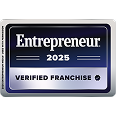Do you want to run your own insurance business, but aren’t sure how to get started? If so, you’re not alone. Plenty of successful insurance leaders began with the same question. The answer has always been the same, which is that you need to start with business plan. This can also be called a strategic or operational plan. Whatever term you prefer, you need to write document that outlines how you will start and grow your insurance business.
Ready to get started? Begin by understanding the following seven components of what your document should contain.
Download here this Insurance Agency Business Plan Template
1. Executive Summary
An executive summary should be the first section of a business plan for an insurance agency or any other business. You’ve seen these if you’ve ever read a lengthy medical case study or whitepaper.
This introductory section should provide all the key points included in the rest of the paper. Be sure to include your company name, location, products or services offered, mission and values, and the specific purpose of your writing. This purpose could be to secure financing from a bank, seek investment from venture capitalists, and/or establish a company-wide strategy.
2. Company Description
Whereas the purpose of the executive summary is to provide an overview of the most significant areas of interest, the company description is often considered the first real section of a strategic plan.
Use this opening as a chance to announce who you are, how you will operate, and what your goals are. This is also the space to tell the reader whether you are a sole-proprietor, corporation, or franchisee.
3. Operations
After your target audience gains an overview of your company, they will want to know exactly what products and services you will be offering and how you will market them.
In this section, you may also want to include any advantages you have in the industry or how your company’s offering fares against the competition. Don’t be afraid to flex a little muscle here if you have a niche that separates you from the herd.
If you have superior processes and systems, this is the place to mention it. Your unique ideas for keeping costs down or improving efficiencies could be exactly what your target audience wants to know about.
4. Market Analysis
No strategic plan is complete without market research. Back up what you have to say about superior operations with comprehensive knowledge of the industry. Talk about targeted demographics, the industry outlook, and your projected marketing data.
Chances are, you have already done significant research if you’re taking the action to write this document. Now is the time to show off what you’ve learned. Include plenty of statistics here and use whatever graphs and charts you can design to help any visual learners who may want to read your vision for success.
5. Strategy
At this point of the paper, you may have piqued the interest of your reader. They have read the overview, learned a description of your company, become intrigued by some nuances in your operations, and are impressed by your knowledge of the market. However, do you know how to promote your company?
The strategy section is where you can outline marketing campaigns and promotions. You can also use this space to talk about your price point, costs, labor, and any specifics about a potential location.
6. Organizational Structure
Time to break out the organizational chart. If your reader has gotten this far, you have likely done a great job of selling your company’s viability to them. Now they want to know who will be calling the shots and in what capacity.
The organizational structure should list all the owners and each of the percentages of ownership. You also want to provide descriptions of your management team, including their primary and secondary responsibilities, as well as any relevant industry experience.
Lastly, if you have board members, advisors, an accounting firm, or a legal team, you would mention them here. The more reputable names you can associate with your organization, the better it will look on the business plan for an insurance agency, retail provider, or anything else.
7. Financial Plan
How are you going to make money? Many people get so excited about this part, they want to include it first, or it is all they want to talk about. To maintain the utmost professional polish, include the financial part last.
This is where you may need to include personal income verification, historical monetary data for any previous businesses, balance sheets, and other financial documents to prove that you are a safe bet to begin and grow your company.
At the end of this section, you should also include a short and readable analysis that covers all the financial data. A quick look at this section should tell your reader everything they need to know about the financial viability of your entrepreneurial intentions.
A Final Word and Other Resources
Writing a business plan for an insurance agency can seem like a daunting task at first. It really comes down to just filling in the right information. Consider it similar to a job application where you’re trying to sell yourself as the best candidate for the job. In this case, you’re simply trying to tell people how you can run and grow a successful business.
If you’ve ever written a paper in school or conducted research for a job, you are more than equipped to handle this first step in your journey to being a successful business owner.
A quick online search for “sample business plan insurance agency” should reveal countless choices you can use as a reference. You could also bookmark this insurance agency business plan template and fill in the spaces with your information.
Now that you know how to write a business plan for an insurance agency, contact Freeway Franchise at (877) 822-3024 or fill out our quick online form. We’re always looking to work with smart, driven, and entrepreneurial-minded people to own and operate a new franchise location with our brand name.


